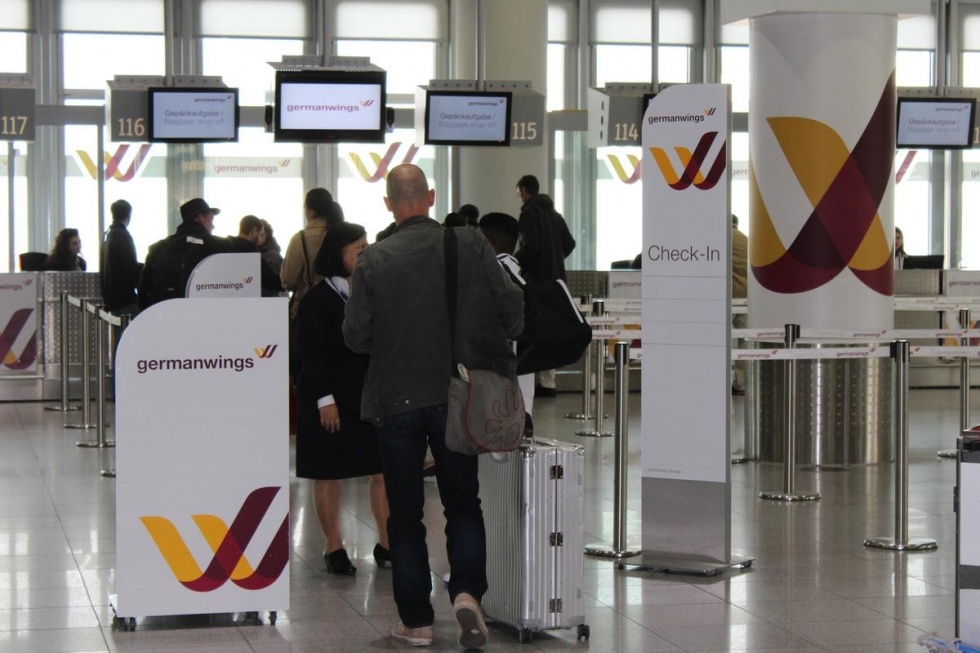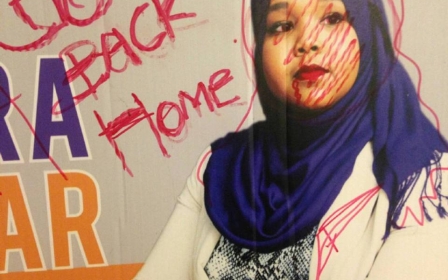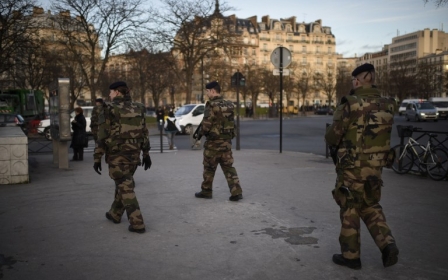Anders Lubitz: Racial subtext to discourse on counter-terrorism

More than 120 hours have passed since the pilot of Germanwings flight 9525, Anders Lubitz, intentionally put 150 passengers and himself in the path of the French Alps.
We have been told of Lubitz’s flying and medical records. We know he was a Caucasian male in his late 20s, he ran marathons, lived with his parents, and a doctor had deemed him “unfit to work” in the days leading up to his murderous actions.
What we don’t know is his religious status, which says so much about the arbitrary application of the word “terrorism” – a word that has exclusively been assigned to acts of violence carried out by Muslims/Arabs.
Brice Robin, the French prosecutor leading the investigation, replied when pressed over Lubitz’s religion, “I don’t think this is where this lies. I don’t think we will get answers there.”
In other words, because we know Lubitz wasn’t a Muslim, “religious motivation” has been taken completely off the table. Even though we still don’t know whether Lubitz was a devout Christian, an avowed New Atheist, or a radicalised Zionist.
While it’s becoming clear that Lubitz wasn't politically or religiously motivated, the fact we don't even know his religious status says so much. Do you really believe if Lubitz was Arab, Persian, African or Asian we still wouldn’t have known his religious status 120 hours post-crime?
If Lubitz were anything but a white male, his religion status would’ve been the first thing we knew about him, and, presumably, his character would’ve been shredded, shortly thereafter.
In fact, when it became evident the co-pilot had intentionally downed Flight 9525, but before it was clear Lubitz wasn’t a Muslim, CNN typified, at least subtlety, Western media’s anti-Muslim prejudice in their Breaking News Twitter feed: “Religion unknown, prosecutor says.” In other words, “We will care more if we can tie him to Islam,” mocked journalist Imraan Siddiqi.
Other Western media outlets were less subtle. “Allah e’ Grande, 150 morti” read the front page of Italian newspaper iL Giornale, published before details of the crash had emerged. (Translated: Did a Muslim murder the 150 passengers aboard flight 9525?)
Others were even outright vulgar. “Was the co-pilot Muslim? Why did he want to kill these people,” asked firebrand Christian evangelist Pat Robertson and host of the 700 Club.
MSNBC’s Christopher Hayes did highlight the media’s double standard, however, when he tweeted, “Consider how different the coverage would be already if this co-pilot were named Mohammed Al-Masaood, son of Egyptian immigrants.”
The media coverage of Lubitz is typical of any act of violence carried out by a white perpetrator. “The political act of labeling certain forms of violence as terrorism is also usually a radicalised act,” writes Arun Kundnani. “This was revealed clearly in the hours after the attacks in Boston and Woolwich, before the identities of the perpetrators were known.”
In the first 24 hours that followed the Boston bombing, CNN mistakenly reported that a perpetrator had been arrested. Worse, they identified this non-person as a “dark-skinned man.” Kundnani noted that this “was not just an individual gaffe but the making explicit of the racial subtext to the entire discourse of counter-terrorism.” That same day on MSNBC, Chris Matthews asked his panel of counter-terrorism experts whether they would be able to tell from grainy CCTV images of the suspect’s face whether they were “from Yemen or other parts like that.”
“The suspect’s face was being asked to reveal a racial identity that would, in turn, tell us whether he was one of 'them' or one of 'us' and therefore what kind of emotional response to the bombing would be appropriate. As it turned out, the suspects were in every sense Caucasian,” noted Kundnani.
In the wake of the Woolwich attack, which resulted in the stabbing death of a British soldier, the BBC’s Nick Robinson described the perpetrators as being of “Muslim appearance” before it was known they were indeed converts to Islam. “The black man he [Robinson] was referring to was wearing jeans, a hoodie, and wooly hat: nevertheless his ‘Muslimness’ had somehow become visible, thereby justifying the term ‘terrorist,’” writes Kundnani.
In 2011, right-wing extremist Anders Breivik murdered 77 students from a liberal university in Norway. Before the media or authorities knew Breivik’s identity, a Caucasian Christian, the UK’s Sun newspaper carried a frontpage headline that read: “Al-Qaeda Massacre: Norway’s 9/11.”
Last week, a man armed with six homemade bombs, poison spray and a machete attacked federal TSA officers at New Orleans’ airport. The perpetrator sprayed two officers with the poison, chased another with his machete. Nowhere was this reported as a “terrorist attack.” Instead authorities dismissed the alleged perpetrator as “mentally ill,” despite the fact he was a devout Jehovah’s Witness.
“Of course, if he were Muslim there's no doubt this would be labelled a terrorist attack but because he isn't, the police and media essentially ignored it and chalked up the attack to 'mental illness' despite zero evidence released to support that claim by the police,” writes Dean Obeidallah for the Daily Beast. Obeidallah states accurately that were the perpetrator a Muslim, “there’s zero doubt that this would be called a terrorist attack. Zero. It would make headlines across the country and world, and we would see wall-to-wall cable news coverage for days. And, of course, certain right-wing media outlets, many conservative politicians, and Bill Maher would use this event as another excuse to stoke the flames of hate toward Muslims.”
While there is “neither an academic nor an international legal consensus regarding the definition of the term terrorism,” the dictionary defines terrorism as the use of violence and threats to intimidate or coerce, especially for political purposes. In Terrorism: Theirs and Ours, Eqbal Ahmad, a scholar of violent extremism, notes that to designate an act of terrorism is to “arbitrarily isolate it from other acts of violence considered normal, rational, or necessary.” Kundnani notes that the definition of terrorism is never applied consistently, “because to do so would mean the condemnatory power of the term would have to be applied to our violence as much as theirs, thereby defeating the word’s usefulness.”
In the years 1990 to 2012, violence carried out by right-wing groups is on par with violence carried out by Muslims in Europe (249 and 263 incidences, respectively). During the same period, “there were 145 acts of political violence carried out by the American far right, resulting in 348 deaths.” In comparison, 20 were killed in acts of political violence carried out by Muslim-American citizens. In 2015, the US Department of Homeland Security reported that the threat of right-wing political violence is greater than the threat posed by Muslim terrorist groups.
Given the West reserves the word “terrorism” exclusively for acts of political violence carried out by Muslims, isn’t it obvious why so many Americans believe that all terrorists are Muslims?
- CJ Werleman is the author of Crucifying America, God Hates You. Hate Him Back, Koran Curious, and is the host of Foreign Object. Follow him on twitter: @cjwerleman
The views expressed in this article belong to the author and do not necessarily reflect the editorial policy of Middle East Eye.
Photo: Passengers stand in front of check-in counter of the airline Germanwings at the airport in Duesseldorf, Germany on 24 March 2015.
New MEE newsletter: Jerusalem Dispatch
Sign up to get the latest insights and analysis on Israel-Palestine, alongside Turkey Unpacked and other MEE newsletters
Middle East Eye delivers independent and unrivalled coverage and analysis of the Middle East, North Africa and beyond. To learn more about republishing this content and the associated fees, please fill out this form. More about MEE can be found here.





